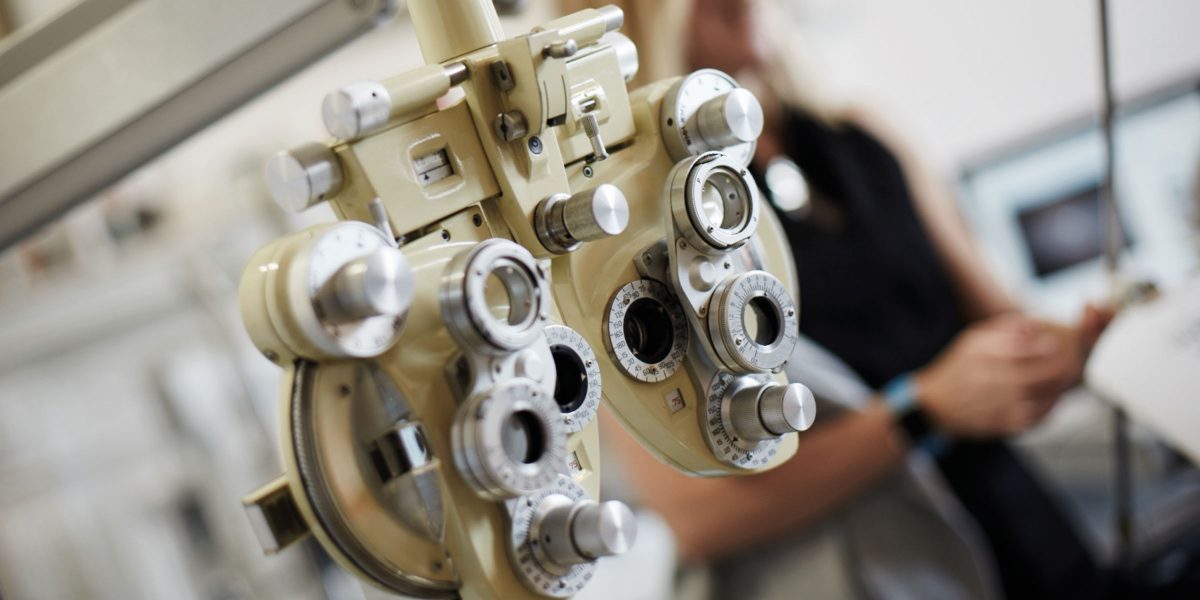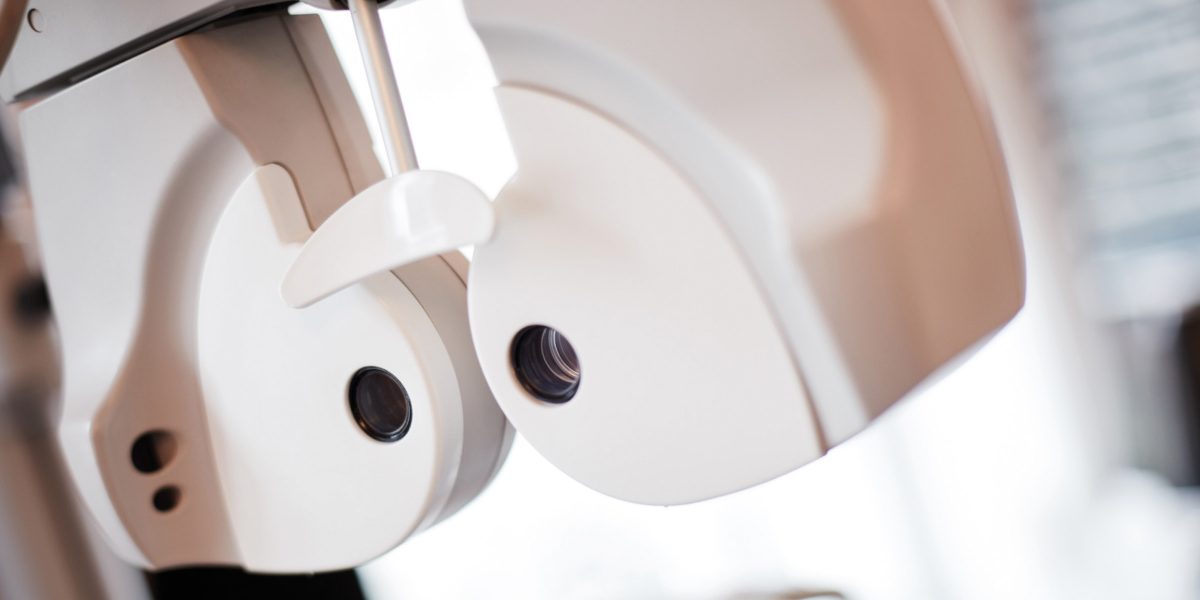We take pride in providing one of the most thorough and technologically advanced eye tests in the world.
What happens in the eye examination?
The first thing we do is take a thorough note of your history and symptoms. We will ask you about your history of spectacle wear, the reason you have come for an eye examination, and any problems you are currently having with your glasses and/or contact lenses. We will also enquire about your general health and any medications you are taking (as some systemic conditions and medications can affect your eyes), whether you have a history of eye problems and whether there is a history of eye conditions in your family. We are also interested in your working environment and any hobbies you have, to help us find the visual correction that works best for you.
Your current spectacles (if you have them) will be measured and we will assess what you are able to see through them.

The eye test will include assessments of your eye muscles and the balance between the two eyes will be conducted, including convergence testing, as well as examination of your pupil reactions where necessary.
We will then check your spectacle refraction. This is a measurement of the power of the lenses you need to be able to see the most clearly and comfortably at both distance and near viewing. If you are a contact lens wearer, we will then assess the strength and design of your contact lenses.

The next part of your eye test will involve a thorough look at the health of your eyes, both front (eyelids and lashes, sclera and conjunctiva, cornea, iris and lens) and back (vitreous, retina, optic nerve head, macula and retinal blood vessels). This is where the eye examination at Burnett Hodd & Tam really excels, as we use the latest eye technology to assess the health of your eyes. In fact, many Harley Street ophthalmologists refer their patients to us to have tests carried out using this technology.

Many systemic conditions affect your eyes, for example high blood pressure and diabetes, as do certain medications and smoking. The eye is also susceptible to conditions such as glaucoma and age-related macular degeneration, especially as we get older. There are many more rare conditions that we can detect, such as eye tumours, retinal detachments and degenerations. Many of these conditions are not immediately obvious on a simple photo of the back of the eye. Our latest technology aids us in the detection, monitoring and management of potential eye problems.
What happens after the eye examination?
After the eye test, we will go over and discuss with you the results gathered and the best course of action, whether that may be monitoring an eye condition, referral to an ophthalmologist or new glasses.
If you need new spectacles or just fancy a ‘new look’, our Dispensing Opticians, Jovi and Michaela, are on hand to guide you through the process of choosing a frame that makes you look and feel great, and deciding on the best kind of lenses for you.
